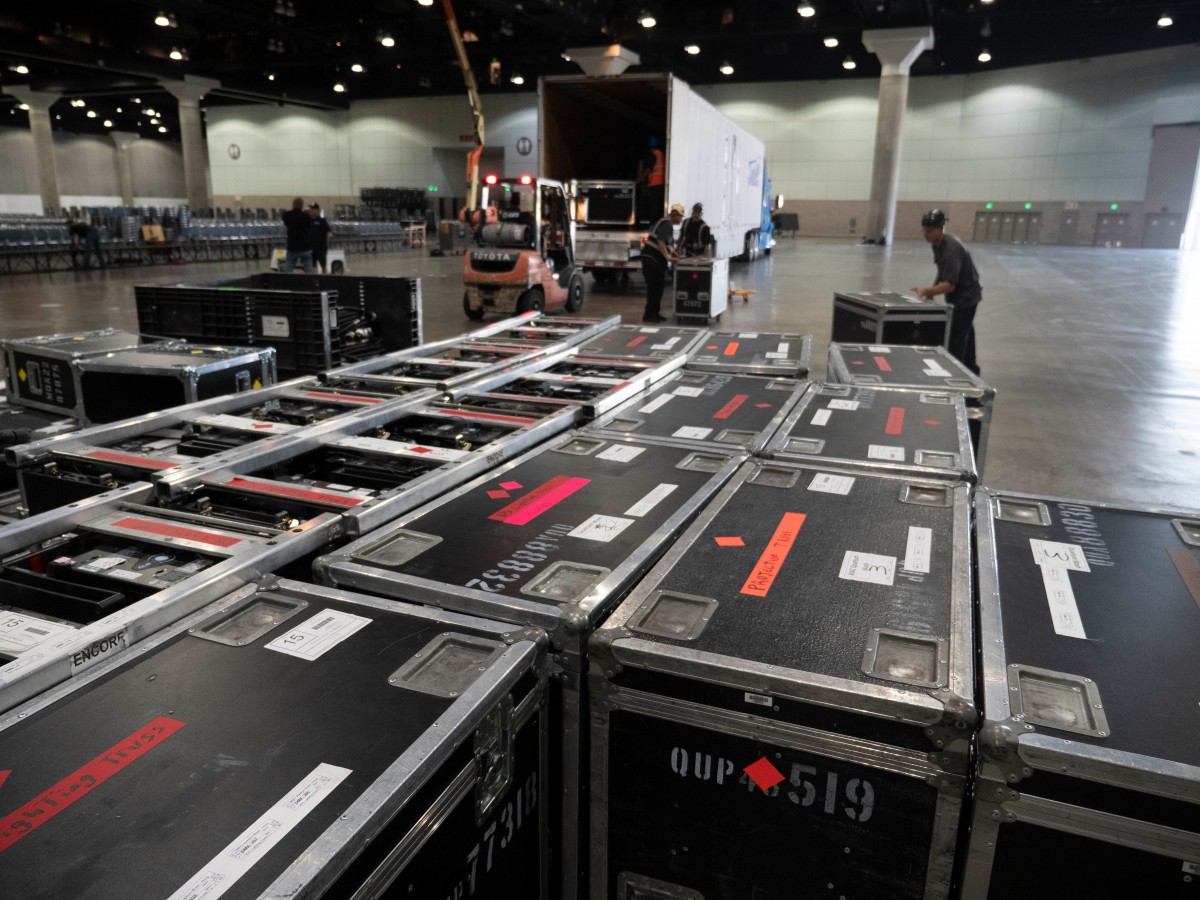
Should AV and event staging costs be an important consideration among event planners at the very outset of their next event? We think they should.
As we wrote in Part One of this two-part series, AV planning can help nail down budgets and establish how the production will meet corporate objectives.
We first covered attendee numbers, room size and how AV companies cost out their equipment. Now, we’ll dive further into logistics, what you’re actually buying and the seven elemental questions to answer prior to meeting with an AV pro.
So, with the space requirements, objectives and attendees accounted for – and a better than ballpark estimate of equipment cost – comes transportation, access and set up. How the gear goes from point A and what happens when it arrives at point B includes a number of variables that can influence your costs.
Once you get access to the space, when gear is moved in and by whom could affect how much you’ll pay in labor to set, present and tear down the equipment you’re renting.
The “when” of space access could have budgetary impact. Labor on a midnight load-out might be more expensive than labor on a normal 8-5 workday. Also, mandated use of unionized labor can be a factor.
Logistics is a variable cost because it depends on the amount of effort and time it takes to unload and move equipment. Concerns can include distance and how direct access is from the loading dock.
In Chicago, for example, some hotels have one shared loading dock for all vendors with access only during regular working hours.
Once inside, long and twisting hallways and tight corners can hinder progress to the event space, as can vertical access. Passenger elevators could slow equipment transport compared to freight elevators.
There is the matter of power and Internet access. The ability to tie into the venue’s access can be a time-saver, but it’s not an inexpensive proposition. If not, supplying power from the outside, which is not always possible, could limit the size and scope of lighting and sound equipment your event will need.
The gear that makes the sound, delivers images and creates environment and experience have their price. Often times, however, event planners think the cost is the equipment. It isn’t. You aren’t simply renting physical equipment when you engage with an experienced AV firm. You’re purchasing its technical talent.
Trained professionals are required to run the event. Big shows need dedicated people to direct technical staff, producers and directors. And even though highly experienced AV firms plan for every contingency, technical faults occur. And you need people on-site to correct equipment errors to keep the event moving.
For reference, everyone working on your event has assigned day rates, based on eight to 10 hours per day. Other non-key personnel could have half-day or five-hour calls assigned.
As we said at the beginning, AV and event staging costs are highly variable. To get at realistic numbers more quickly, meeting planners can help by having the following information in hand at their initial AV provider meeting:
When you work with an AV and event staging company, you’re not simply renting equipment. It should always be about matching the right complimenting equipment for the kind event you’re planning.
But you’re also buying capability, process and confidence. A reputable outfit should also validate its step-by-step event planning approach that manages set-up, execution and teardown.
You may not want or need all the gory details but knowing how your event plan is executed delivers confidence, not to mention peace of mind that the equipment, staff and technical expertise ensures your vision is carried out.
___________________________________________________________________________________________________
Looking for assistance with your next event? Contact us for a consultation at www.stagerightinc.com/contact/.